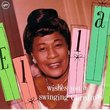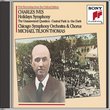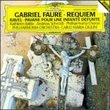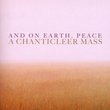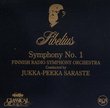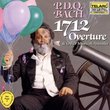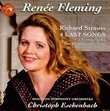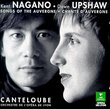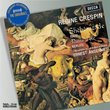| All Artists: Johann Sebastian Bach, Catherine Bott, Michael Chance, Philip Pickett, New London Consort, Paul Agnew, Andrew King, Michael George, Helen Parker, Richard Ireland, Simon Grant, William Purefoy Title: Bach - Christmas Oratorio / Bott, Chance, Agnew, King, George, New London Consort, Pickett Members Wishing: 0 Total Copies: 0 Label: Decca Release Date: 10/10/2000 Genres: Special Interest, Classical Styles: Holiday & Wedding, Opera & Classical Vocal, Historical Periods, Baroque (c.1600-1750) Number of Discs: 2 SwapaCD Credits: 2 UPC: 028945883823 |
Search - Johann Sebastian Bach, Catherine Bott, Michael Chance :: Bach - Christmas Oratorio / Bott, Chance, Agnew, King, George, New London Consort, Pickett
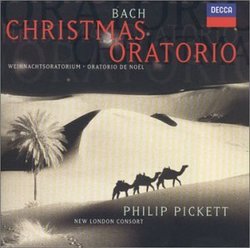 | Johann Sebastian Bach, Catherine Bott, Michael Chance Bach - Christmas Oratorio / Bott, Chance, Agnew, King, George, New London Consort, Pickett Genres: Special Interest, Classical
|
Larger Image |
CD DetailsSimilarly Requested CDs |
Member CD ReviewsReviewed on 7/8/2017... wish
CD ReviewsImpressive, entertaining Masterpiece--Not just for Xmas. Robert Allard | Quiogue, Long Island, NY | 02/03/2005 (5 out of 5 stars) "From beginning to end, this Oratorio is extremely well-played & consistently entertaining. It nevers flags or fails to impress. If the guy did nothing else, this would be his masterpiece. Often the excellence of the performers is awe-inspiring. A bit expensive, but at over 70 minutes a disc, this is really a piece of work. It runs 2 hours, 27 minutes and I get caught up in listening each time I put it on. A+" A voice teacher and early music fan George Peabody | Planet Earth | 02/24/2007 (5 out of 5 stars) "PICKETT'S PREFERENCE; SOLOISTS SING AND SING AND SING! I LOVE IT!!!!!
Johann Sebastion Bach (1685-1750)wrote very little church music after 1730, so it is not surprising that when he produced for Christmas, 1734, an 'Oratorio' in six parts he adapted much of it from earlier compositions, mostly secular odes. Recitatives and chorale settings were of course new, but otherwise all but one of the arias and nearly all the choruses were 'parodies.' The six cantatas of the 'Christmas Oratorio' are designed to be performed on separate days from Christmas Day to Epiphany, but it does not necessarily follow that they are unconnected. Bach must have composed the work continuously, and there are many, sometimes obvious, sometimes subtle, connections between the separate parts. The 'Christmas' Oratorio was virtually the last of Bach's major contributions to the music of the church, later works being almost exclusively either parodies or revisions of cantatas written in former times. Philip Pickett is convinced that small is beautiful where Bach's choral music is concerned. To quote him:"I'm prepared to accept that most of what Bach composed was written for very small forces....I decided to tread a middle ground and use two or three singers per part, with the soloists coming out of the 'choir'. And, to my mind, that's what makes this recording different, and in this way better than others of this work. However,having said this, I must comment on the soloists , who for the most part do a fine job of performing, but I really thought that Andrew King did not project very well his solos. In fact, they seemed rather bland compared to those of the other soloists. Just my opinion, of course. With singers like: Catherine Bott(sop)-Michael Chance (countertenor) Paul Agnew (tenor) and Michael George(bass), one has to be in top form to be on their level. I don't know quite what the reasoning of Pickett was for doing this, but the recording is still very well executed, and I do like his somewhat slower tempi in certain portions of the work. Needless to say, the small chorus is nigh unto perfect, and I enjoyed hearing them very much. I guess I still prefer the 1989 recording by Collegium Vocale under the direction of Philippe Herreweghe, who also makes use of Chance with the additon of Barbara Schlick-Howard Crook and Peter Kooy. Gardiner & the Monteverdi Singers have also recorded this, so take your pick. It's nice to have so many good performances from which to choose." |

 Track Listings (36) - Disc #1
Track Listings (36) - Disc #1